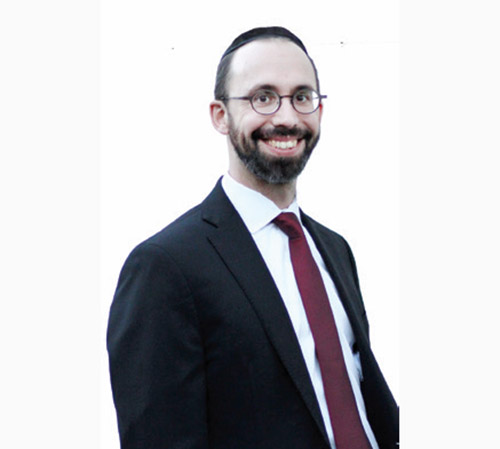
Some names are not high on the list when we have a new baby boy. Korach is one of those names. He instigated a major revolt against Moshe and was later swallowed alive in the abyss. Yet the parsha that bears his name is rather subtle in its introduction, opening with a seemingly small detail: Vayikach Korach—and Korach took.
A careful analysis of this small word through the lenses of our Chazal (Jewish Sages) will see the penetrating depth of the Torah into Korach’s psyche. What did he take? Onkelos explains vayikach to mean Korach “took himself” from the rest of the people—as Rashi says, Korach separated himself from the rest of the nation to dispute the appointment by Moshe of his brother Aharon as kohen gadol. This act, of trying to put himself above everyone else, is what led to his ultimate doom, in this world and in the next.
Still, it’s somewhat surprising the parsha should be named after Korach, the individual who revolted against Moshe and Aharon. Wouldn’t it have been more appropriate to name the parsha after Moshe or Aharon who were the victors in this epic dispute?
I believe this is an example of Moshe and Aharon’s greatness. They were the epitome of what it means to be part of a nation. They so respected each individual to the extent they insisted the parsha be named after the villain who falsely accused them and instigated the mass revolt described in the parsha. Although Korach separated himself from the klal (the nation), Moshe and Aharon still treated Korach as part of the klal.
In the end, the earth swallowed up Korach like a mouth. The Mishnah in Avos (Chapter 5) says this phenomenon was created at twilight of the sixth day of creation. Also created at the same time were the mouth of the donkey of Bilam that spoke words and the mouth of the well of Miriam that gave water to all the Jewish people for 40 years. What is the connection of these three mouths? Perhaps we can see the mouth as being a conduit for blessing or curse, depending on how it is used.
Certainly, by Korach choosing to defiantly separate himself from the rest of klal Yisrael, we can see the cause of his catastrophic end—being swallowed by the earth. Symbolically, Korach had no place for existence in this world.
One Erev Rosh Hashanah, Rebbetzin Miriam Weiss, a”h, the late wife of Rav Moshe Meir Weiss of Staten Island, received an unexpected phone call from one of the modern-day leaders of the Orthodox world, Rav Moshe Sherer. “Is this Mrs. Weiss?” he asked. “Shall I get my husband?” was her reply. “No,” Rabbi Sherer continued, “I called to speak to you.” The modest Mrs. Weiss was startled and wondered why he wanted to speak with her, and not with her well-known husband! Rabbi Sherer continued. “Mrs. Weiss, does your husband give a Daf Yomi shiur every night in Staten Island? And does your husband then go to Brooklyn to give a Daf Yomi shiur there at 9:30 p.m. every night?” “Yes,” she answered. “And I understand that you encourage your husband to go out each night to teach Torah for many hours! On behalf of klal Yisrael, I want to thank you and wish you a gut gebentched yuhr [a year of great blessing!],” said Rabbi Sherer.
Rabbi Sherer was a living example of a person who thought about the klal at all times. He traveled the world, met with kings and presidents, but always recognized how each person’s actions impact the klal and wanted to thank as many of them as possible for their contributions. Rabbi Sherer had many things to do on Erev Rosh Hashanah, but as a person devoted to the Jewish public, thanking and encouraging those who contributed to helping the Jewish public was his top priority.
Each one of us is an essential part of the whole that is klal Yisrael. Each one of us has a unique personality and a distinct role to play. It’s a non-transferable gift. But as important as we are individually, our pivotal role can be accomplished only when we work together in furtherance of Hashem’s Torah, as part of a whole—as part of klal Yisrael. This is our mission; are you ready to accept it?
By Rabbi Baruch Bodenheim
Rabbi Baruch Bodenheim is the associate rosh yeshiva of Passaic Torah Institute (PTI)/Yeshiva Ner Boruch. PTI has attracted people from all over northern New Jersey, including Teaneck, Bergenfield, Paramus, Rockaway and Fair Lawn. He initiated and continues to lead a multi-level Gemara learning program. Recently he has spread out beyond PTI to begin a weekly beis midrash program with in-depth chavrusa learning in Livingston and Springfield. This year he joined Heichal Hatorah in Teaneck as a Gemara iyun rebbe. His email is [email protected].










